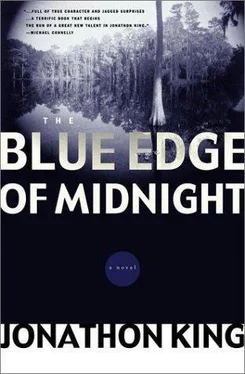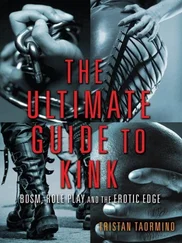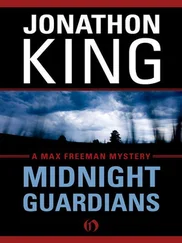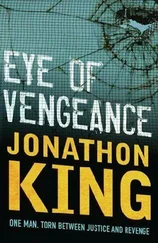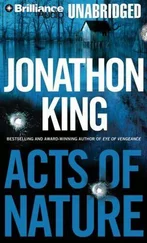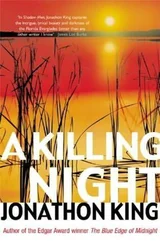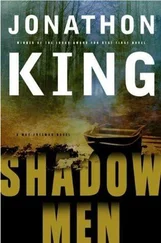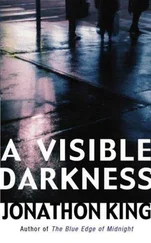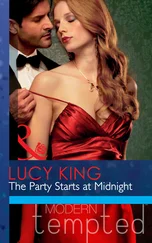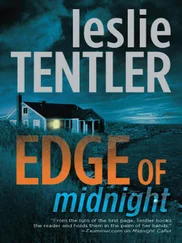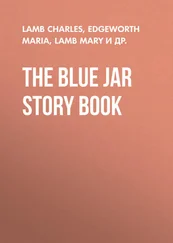Jonathon King - The Blue Edge of Midnight
Здесь есть возможность читать онлайн «Jonathon King - The Blue Edge of Midnight» весь текст электронной книги совершенно бесплатно (целиком полную версию без сокращений). В некоторых случаях можно слушать аудио, скачать через торрент в формате fb2 и присутствует краткое содержание. Жанр: Триллер, на английском языке. Описание произведения, (предисловие) а так же отзывы посетителей доступны на портале библиотеки ЛибКат.
- Название:The Blue Edge of Midnight
- Автор:
- Жанр:
- Год:неизвестен
- ISBN:нет данных
- Рейтинг книги:4 / 5. Голосов: 1
-
Избранное:Добавить в избранное
- Отзывы:
-
Ваша оценка:
- 80
- 1
- 2
- 3
- 4
- 5
The Blue Edge of Midnight: краткое содержание, описание и аннотация
Предлагаем к чтению аннотацию, описание, краткое содержание или предисловие (зависит от того, что написал сам автор книги «The Blue Edge of Midnight»). Если вы не нашли необходимую информацию о книге — напишите в комментариях, мы постараемся отыскать её.
The Blue Edge of Midnight — читать онлайн бесплатно полную книгу (весь текст) целиком
Ниже представлен текст книги, разбитый по страницам. Система сохранения места последней прочитанной страницы, позволяет с удобством читать онлайн бесплатно книгу «The Blue Edge of Midnight», без необходимости каждый раз заново искать на чём Вы остановились. Поставьте закладку, и сможете в любой момент перейти на страницу, на которой закончили чтение.
Интервал:
Закладка:
I still worked up a heavy sweat and a running heartbeat by the time I entered the mouth of the canopy. Inside the shade I stopped paddling and drifted into the coolness. A Florida red belly turtle stood guard on a downed tree trunk, his neck stretched out as if sniffing the air, the yellow, arrow-shaped marking on his snout pointing up the river. The white summer sky peeked through the leaves, its rays spattered the ferns below and in the distance I heard the soft roll of thunder. I resettled myself in the seat and moved on.
By the time I reached the shack it was raining, hard. The leaf canopy sounded like cloth ripping and lightning sent a flash through the undergrowth and for an instant stole the color from the trees. I lashed the canoe to my platform and ran the bags up the stairs but when I twisted the knob and pushed, the door rattled and stuck.
I'd forgotten Cleve's new lock and dug through my pockets for the key. Once inside I dragged the bags through the doorway and stood dripping on the pine floors and squinting through the dusk. I had seen too much of Billy's airy and fashionable apartment.
I found my way to the kerosene lamp and lit the wick. Hammonds' warrant servers had been civil. With the exception of a few counter items out of place, it was the same as I'd left it. I started a wood fire in the stove and set up a pot of coffee. I found my old enameled cup that some officer had misplaced on the drain board.
Outside the lightning snapped and I could hear the water sluicing off the roof and onto the cinnamon fern below the windows. I took off my dripping clothes and sat naked in my wooden chair, tipped back on two legs, put my heels on the table and listened to the rain.
I lay in my bunk that night half dreaming and half recalling, my skin moist in the humidity, and every time I closed my eyes I could see blue and red lights flashing through the trees. I was back in Philadelphia. The concrete sidewalk was still wet from some early-morning drizzle and up high at the top of the hill in the distance loomed the huge, yellowish back wall of the Museum of Art. In front were the tiered steps that the Rocky character had charged up and then shaken his fists at the world. In back was the Schuylkill River winding out through an urban park of maple trees and wooded lanes and granite cliffs. On that morning, between the museum and boathouse row, under a thicket of azaleas, lay a young woman with her running suit muddied and half pulled off, her Nike cross trainer on one foot but without a partner, and her throat cut from ear to ear.
I was working with a Center City detective squad, low on the totem pole and "learning the craft," according to my new lieutenant. We were on the first call out that morning.
It didn't take long to identify the victim. Although she wasn't carrying I.D. and the key she had strapped into a holder on the remaining shoe was unmarked, I recognized the store label on the running suit. It was a small specialty athletic place on Rittenhouse Square. It was five minutes away up the Benjamin Franklin Parkway and over to Walnut. When we got there the store manager went slack-jawed when he saw the Polaroid we'd taken of the woman.
"Susan Gleason," he said, turning away from the photo. She was a regular. A dedicated runner who lived across the historic square in a centuries-old building retrofitted into high- priced condos. He knew she ran from there down to the river and along the row early every morning. She went through a pair of shoes every twelve weeks. She was a very good customer.
We confirmed with the condo management. Gleason lived alone, a thirty-six-year-old stock analyst, loved the city and worked constantly. The running seemed her only outlet.
The blue lights were still spinning when we got back to the scene. The body and been removed and the other shoe had been found fifty yards away near a parking spot close to one of the rowing clubs along the river. Other members of the detective squad had interviewed several early morning runners. Some recognized the woman's running suit. Some also knew the parking spot was often occupied at dawn by a late-model, beat- up Chevy Impala with one of those orange, city employee parking stickers.
"A big, odd-looking white guy would just sit there with the window down. He's there every morning except on the weekend," a runner said. "You can see the Fairmount Dam from there. I figured he was just enjoying the view before starting the day."
The prints of a size thirteen work boot were found in the mud by the azaleas. The squad fanned out among city maintenance divisions in Center City. A supervisor at the City Hall-area subway division recognized a description of the Impala: Arthur Williams. "Yeah, big guy, kinda, you know, slow."
Williams worked in the underground subway access tunnels, sweeping trash and cleaning graffiti from the walls. He was in his 40s. Quiet. Didn't come in that day, which was unusual.
We got an address in North Philadelphia and another car went with us. An upper-class woman from Rittenhouse Square had been murdered while jogging in a popular park along the river. They weren't sparing any manpower at the roundhouse to button this one down by the evening news.
The house in North Philly was in the middle of a worn- down block of tired homes. They all shared a creaking roofline and were all connected so you could stand on the front porch at one end of the block and see your neighbor eight doors down standing out on his. Only a spindled railing separated your porch floorboards from the next guy's.
We were greeted by an elderly woman who talked through the screen door.
"Mrs. Williams?"
"No, sir. I am Fanny Holland. Mrs. Williams' sister."
"Is Arthur home, ma'am?"
She could see the other detectives moving about the Impala parked on the street.
"He's not going to lose his job over this is he?" the old lady said as she let us in. "He has never missed a day before."
Two detectives went up the narrow staircase. My partner and I went into the kitchen with Fanny Holland and sat her down at the table. She listened for sounds up through the cracked ceiling. The house was not unlike my own childhood home. It smelled of liniment and old cardboard, ancient comforters and soiled doilies. My mother had grown sick in such a place.
The others brought Arthur down. Big, docile, with a confused child's look on his face. They found him in bed covered with three blankets. He still had on his work clothes, including a pair of huge, mud-caked boots. He stumbled with his thick wrists cuffed behind his back and kept repeating in a low whine, "She was too pretty to die. She was too pretty to die."
I was left to explain to the aunt while the rest of the squad took Williams to the roundhouse. The old woman seemed confused and stunned and took the words from my mouth as something indecipherable.
Attack a woman? He could not. There was not a bully on the street, male or female, who couldn't slap the boy to shame since he was ten years old.
Cut her with a knife? He wasn't capable.
Weighing the situation, Fanny Holland let loose the family ghosts. And I listened.
Arthur had been a damaged child. A low I.Q., a momma's boy. A boy who fell further when his father left. His mother endured "until it got to be too much."
She'd committed suicide. Cut her wrists out in the garden. Her favorite place. Had carried the knife in her picking basket. She was dead when Arthur came home from school.
"You couldn't put a butter knife on the table since," the old woman said. "Cut a woman? Impossible."
Arthur's only habit was to leave his house early each day and find a green place. A garden of sorts. She herself went with him on weekends to the Longwood Garden's indoor arboretum in winter. It was the only thing he clung to.
When I got back to the roundhouse the TV news trucks were already stacked in the lot. Inside the bureau a knot of detectives was gathering in the hall opposite the interview rooms. I singled out one of the senior investigators and told him I thought I had some relevant information from the aunt on Williams.
Читать дальшеИнтервал:
Закладка:
Похожие книги на «The Blue Edge of Midnight»
Представляем Вашему вниманию похожие книги на «The Blue Edge of Midnight» списком для выбора. Мы отобрали схожую по названию и смыслу литературу в надежде предоставить читателям больше вариантов отыскать новые, интересные, ещё непрочитанные произведения.
Обсуждение, отзывы о книге «The Blue Edge of Midnight» и просто собственные мнения читателей. Оставьте ваши комментарии, напишите, что Вы думаете о произведении, его смысле или главных героях. Укажите что конкретно понравилось, а что нет, и почему Вы так считаете.
